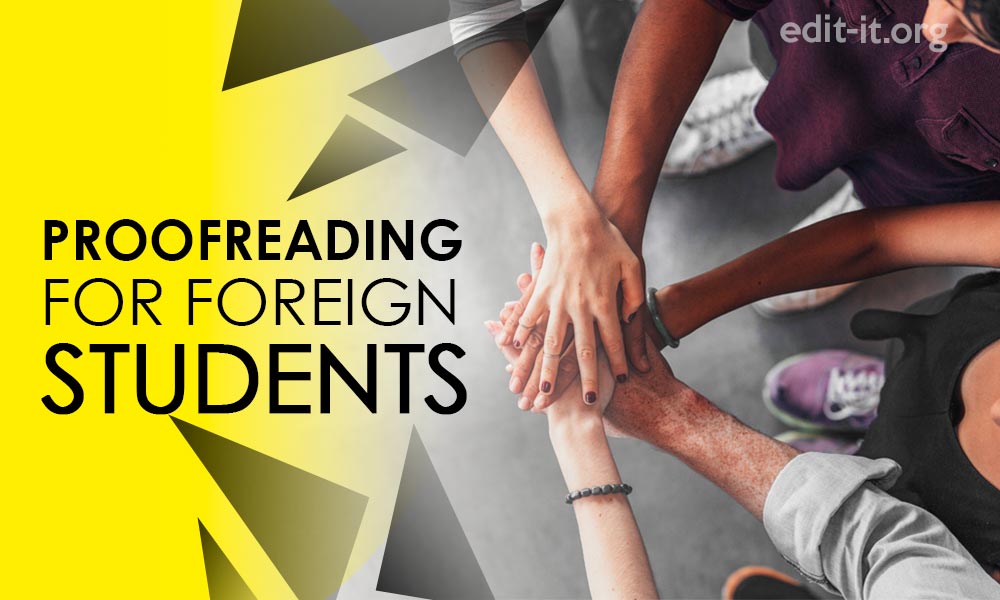
Albert Einstein once said: “Anyone who has never made a mistake has never tried anything new”. Probably, this quote is particularly true for English non-native speakers trying to master grammar, spelling, vocabulary and punctuation of the global language number one. The way towards being fluent in English writing is a rough track full of hidden pitfall and traps that may take more than a half of one’s life. Well, when it comes to the English grammar, even those who have spent many years to polish their written English into perfection always keep in mind an old time-honored saying: “even a good marksman may miss”. Indeed, no one is immune to small purely technical mistakes and blunders, but such well-known predicted pattern is rather a bad excuse to rely on one’s luck, when it comes to such important thing as academic papers.
Thorough and accurate proofreading of paper before submission is a mandatory requirement for everyone, who wants his assignment to be successful and receive positive feedback; although the practice shows that foreign students that aren’t English native speakers, are especially vulnerable to minor grammar and spelling blunders that have killed many highly promising academic papers stone dead. Often despite the perfect in-deep knowledge of English grammar rules, many foreign students develop their very own list of most common mistakes frequently made with what is called a brain on autopilot. Such mistakes repeated though the whole text are easy to detect for professional copyeditor, who’s looking at the academic paper lying in front of him on his desk, however the tired sight of author who has spent several days or weeks on writing is barely able to recognize such minor blunders, which may play a fatal role, when submitting an assignment.
Our online English proofreading company is a real magic wand for foreign students, who believe that it’s better to be safe than sorry. Here your academic paper will undergo as real sorcerous grammar transformation and receive an enchanted shield able to protect you from killing curse by your supervisor.
Most Common Mistakes by Non-Native Speakers or Cast-Iron Reason Why You Need Proofreading
As already mentioned above, every non-native speaker in the process of mastering written English sooner or later develops his very own individual list of frequently made mistakes, however we have prepared a list of the most common grammar and lexical mistakes by foreign students. And, yes, as long as here we discuss the minor technical blunders, we won’t take into account mistakes due to the poor understanding of grammar tenses (in order to use English grammar tenses like a pro, you may look through some of our other our blogposts (e.g. on Future Perfect). So, here we go:
If you have recognized yourself in one of the examples above, well, then it must be an iron-cast reason for you to look for an expert proofreading service before submitting potentially life-changing academic assignment.
English Proofreading Service: Best Editors at Your Disposition
Our expert proofreading and editing team consists only of the English native speakers with flawless academic background, most of which possess a degree in English language and literature. By choosing our proofreading service, you receive the thoroughly proofread paper with comments and suggestions by the editor regarding the areas requiring improvement. We also ensure 100% confidentiality of our customers, offer affordable prices with attractive discounts and loyalty programs, as well as provide a range of other editing related services, including revision and rewriting. If you have any questions left, feel free to contact our 24/7 support team via online chat or by sending an e-mail to the address displayed on the home page.